Text
I think its so incredibly important that Yijin didn’t kiss Heedo back.

All he did was close his eyes, didn’t kiss her back, didn’t hold her, and kept his hands where they were. This is so powerful in that Yijin is giving all the choice to Heedo. It parallels how he confessed to Heedo yet expected nothing in return. In this scenario, Yijin let Heedo do what she wants—not pushing her away and more importantly, not pulling her closer.
After getting over the initial shock and butterflies of seeing this scene, it gave me a bit of mixed feelings since Yijin is obviously older. But now that I think about it, its the most mature decision based on who Yijin is. It would’ve been easy for him to pull her closer, since we all know how he feels about her. But he didn’t. All the power, consent, and initiation is on Heedo and she can pull away whenever she wants to without any sort of influence from Yijin.
168 notes
·
View notes
Video
youtube
Baek Yi-jin & Na Hee-do | You belong with me
“The kiss that started when I was nineteen, ended when I was twenty.”
22 notes
·
View notes
Text


“The kiss that started when I was nineteen ended when I was twenty”.
We finally got the first kiss and the netizens are outraged! I really do not understand the apparent “controversy.” Don’t people understand that teenagers fall in love too and even kiss….
42 notes
·
View notes
Photo
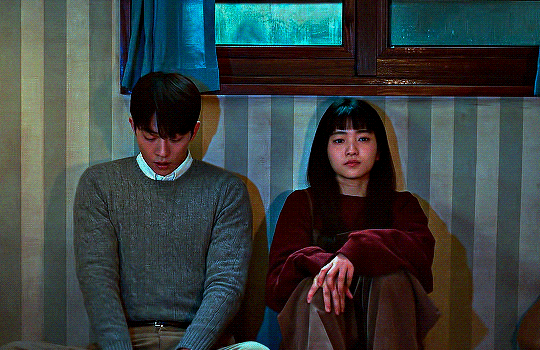
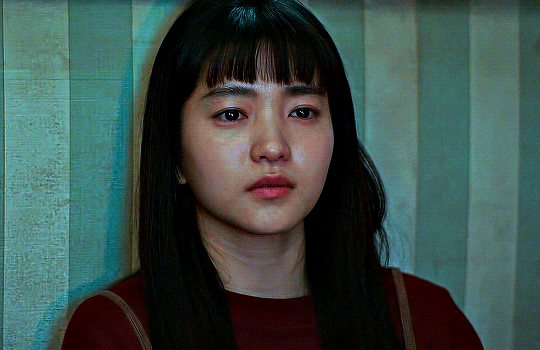
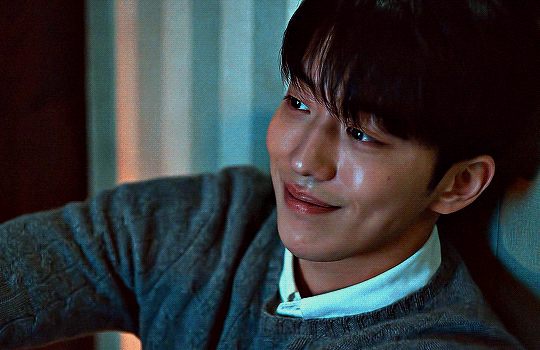

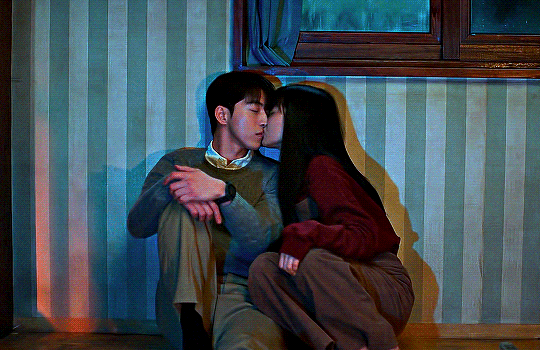
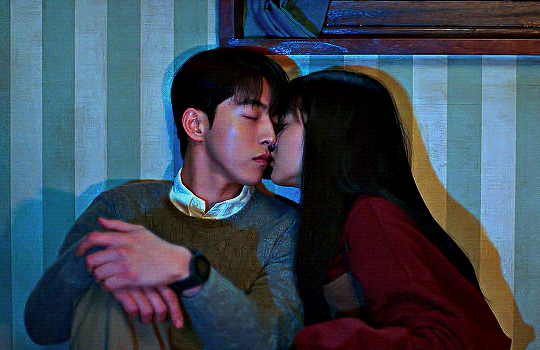
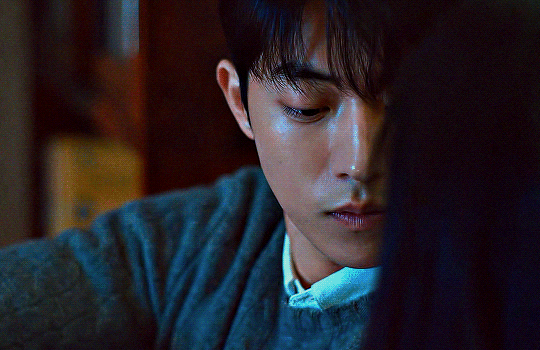
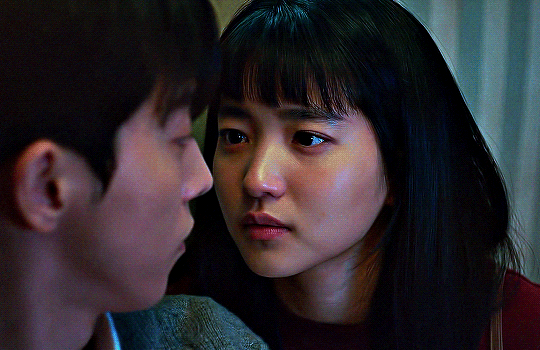
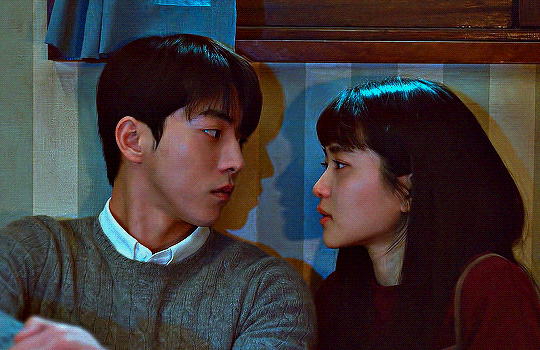
What would you like to do before the world ends?
2K notes
·
View notes
Text




my roommate is a gumiho; wallpapers (^o^)
165 notes
·
View notes
Text






'my roomate is a gumiho' lockcreens! please like or reblog if you save it!! 🌿
185 notes
·
View notes
Photo


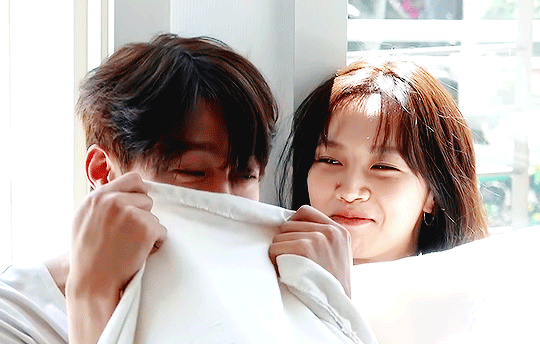

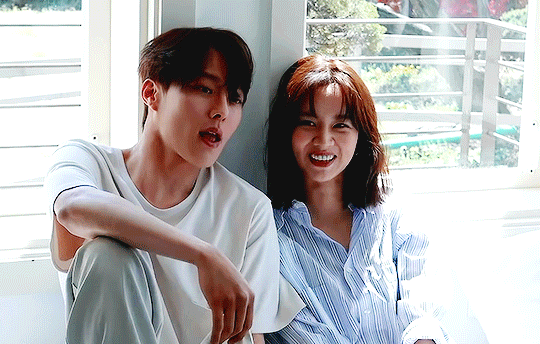
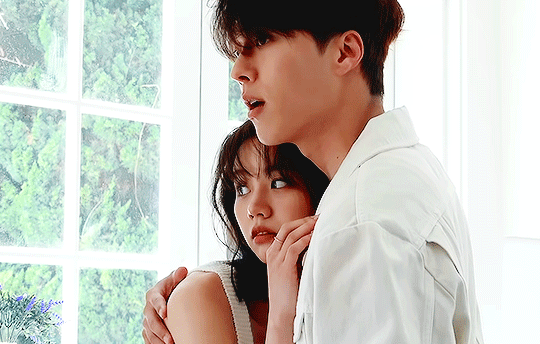

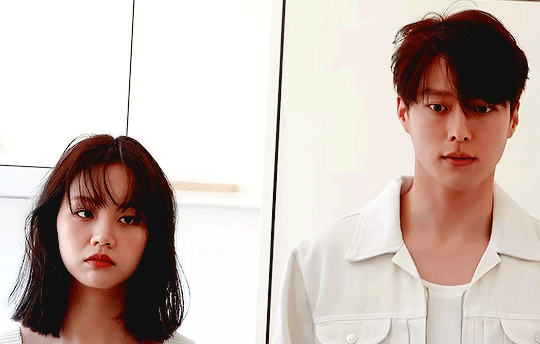
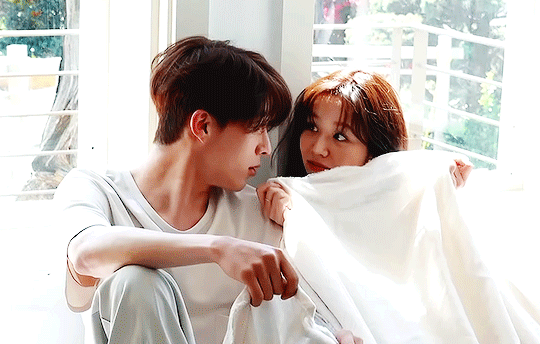
Jang Ki Yong & Hyeri for 1st Look 2021 ♡
1K notes
·
View notes
Photo

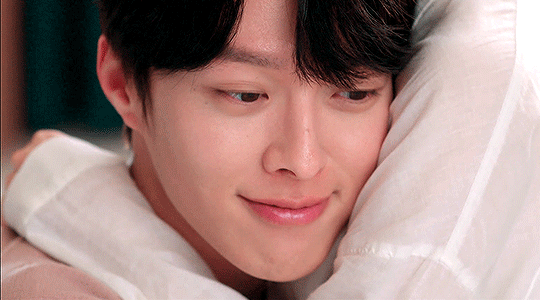
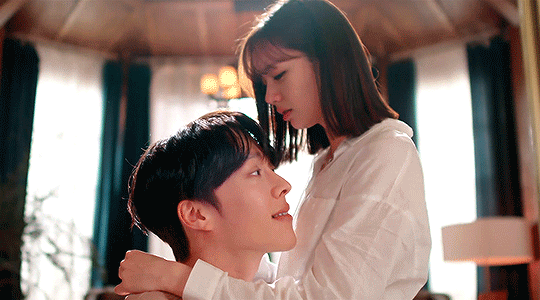
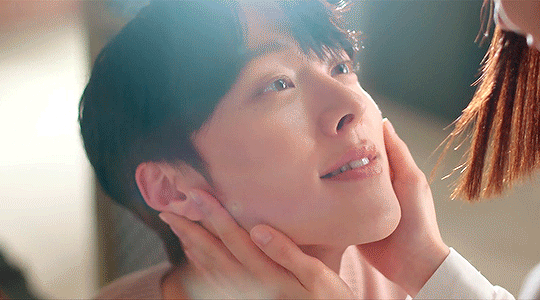

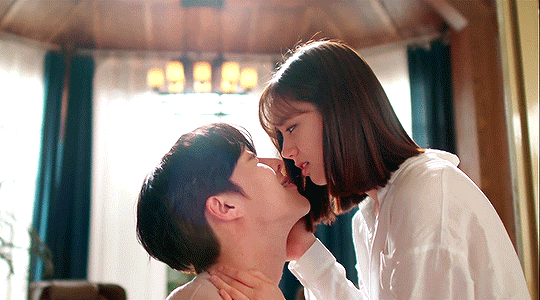
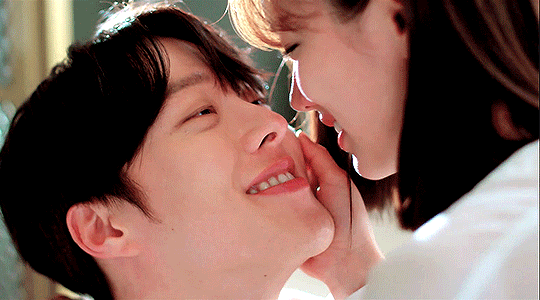
Before 1,000 years is up, before you grow more than 9 tails, if you manage to learn to be patient, to love, to sacrifice, and to eventually find a reason to live… if someone who desperately wishes you to live is waiting, you will turn into a human.
634 notes
·
View notes
Photo









Jang Ki Yong & Hyeri for 1st Look 2021 ♡
1K notes
·
View notes
Photo


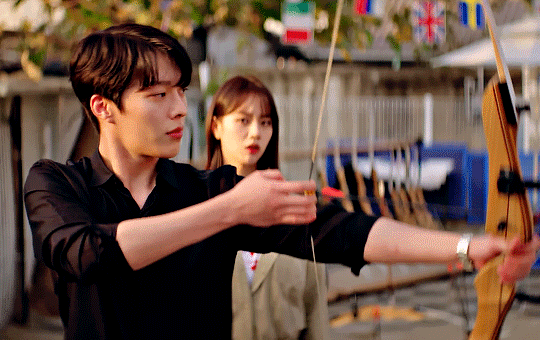

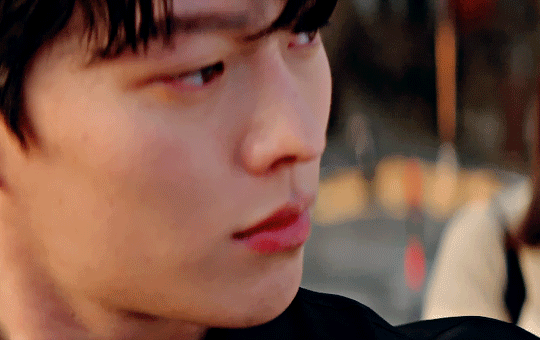
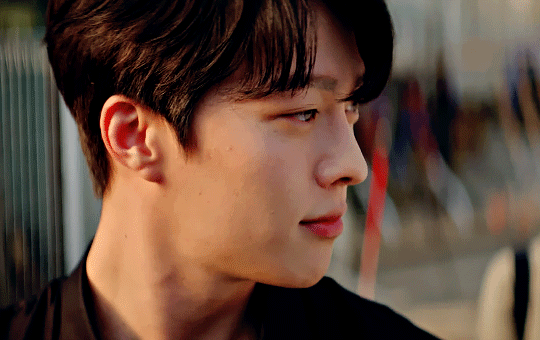
JANG KI-YONG AS SHIN WOO-YEO
MY ROOMMATE IS A GUMIHO (2021)
1K notes
·
View notes
Text
Your Character’s Personality
Personality is the most important thing about your character.
So, whenever I see character sheets, most people just put a little paragraph for that section. If you’re struggling and don’t know what your character should say or do, what decisions they should make, I guarantee you that this is the problem.
You know your character’s name, age, race, sexuality, height, weight, eye color, hair color, their parents’ and siblings’ names. But these are not the things that truly matter about them.
Traits:
pick traits that don’t necessarily go together. For example, someone who is controlling, aggressive and vain can also be generous, sensitive and soft-spoken. Characters need to have at least one flaw that really impacts how they interact with others. Positive traits can work as flaws, too. It is advised that you pick at least ten traits
people are complex, full of contradictions, and please forgive me if this makes anyone uncomfortable, but even bullies can be “nice” people. Anyone can be a “bad” person, even someone who is polite, kind, helpful or timid can also be narcissistic, annoying, inconsiderate and a liar. People are not just “evil” or “good”
Beliefs:
ideas or thoughts that your character has or thinks about the world, society, others or themselves, even without proof or evidence, or which may or may not be true. Beliefs can contradict their values, motives, self-image, etc. For example, the belief that they are an awesome and responsible person when their traits are lazy, irresponsible and shallow. Their self-image and any beliefs they have about themselves may or may not be similar/the same. They might have a poor self-image, but still believe they’re better than everybody else
Values:
what your character thinks is important. Usually influenced by beliefs, their self-image, their history, etc. Some values may contradict their beliefs, wants, traits, or even other values. For example, your character may value being respect, but one of their traits is disrespectful. It is advised you list at least two values, and know which one they value more. For example, your character values justice and family. Their sister tells them she just stole $200 from her teacher’s wallet. Do they tell on her, or do they let her keep the money: justice, or family? Either way, your character probably has some negative feelings, guilt, anger, etc., over betraying their other value
Motives:
what your character wants. It can be abstract or something tangible. For example, wanting to be adored or wanting that job to pay for their father’s medication. Motives can contradict their beliefs, traits, values, behavior, or even other motives. For example, your character may want to be a good person, but their traits are selfish, manipulative, and narcissistic. Motives can be long term or short term. Everyone has wants, whether they realize it or not. You can write “they don’t know what they want,” but you should know. It is advised that you list at least one abstract want
Recurring Feelings:
feelings that they have throughout most of their life. If you put them down as a trait, it is likely they are also recurring feelings. For example, depressed, lonely, happy, etc.
Self Image:
what the character thinks of themselves: their self-esteem. Some character are proud of themselves, others are ashamed of themselves, etc. They may think they are not good enough, or think they are the smartest person in the world. Their self-image can contradict their beliefs, traits, values, behavior, motives, etc. For example, if their self-image is poor, they can still be a cheerful or optimistic person. If they have a positive self-image, they can still be a depressed or negative person. How they picture themselves may or may not be true: maybe they think they’re a horrible person, when they are, in fact, very considerate, helpful, kind, generous, patient, etc. They still have flaws, but flaws don’t necessarily make you a terrible person
Behavior:
how the character’s traits, values, beliefs, self-image, etc., are outwardly displayed: how they act. For example, two characters may have the trait “angry” but they all probably express it differently. One character may be quiet and want to be left alone when they are angry, the other could become verbally aggressive. If your character is a liar, do they pause before lying, or do they suddenly speak very carefully when they normally don’t? Someone who is inconsiderate may have issues with boundaries or eat the last piece of pizza in the fridge when they knew it wasn’t theirs. Behavior is extremely important and it is advised you think long and hard about your character’s actions and what exactly it shows about them
Demeanor:
their general mood and disposition. Maybe they’re usually quiet, cheerful, moody, or irritable, etc.
Posture:
a secondary part of your character’s personality: not as important as everything else. It is advised you fill this out after. Posture is how the character carries themselves. For example, perhaps they swing their arms and keep their shoulders back while they walk, which seems to be the posture of a confident person, so when they sit, their legs are probably open. Another character may slump and have their arms folded when they’re sitting, and when they’re walking, perhaps they drag their feet and look at the ground
Speech Pattern:
a secondary part of your character’s personality: not as important as everything else. It is advised you fill this out after. Speech patterns can be words that your character uses frequently, if they speak clearly, what sort of grammar they use, if they have a wide vocabulary, a small vocabulary, if it’s sophisticated, crude, stammering, repeating themselves, etc. I personally don’t have a very wide vocabulary, if you could tell
Hobbies:
a secondary part of your character’s personality: not as important as everything else. It is advised you fill this out after. Hobbies can include things like drawing, writing, playing an instrument, collecting rocks, collecting tea cups, etc.
Quirks:
a secondary part of your character’s personality, not as important as everything else. It is advised you fill this out after. Quirks are behaviors that are unique to your character. For example, I personally always put my socks on inside out and check the ceiling for spiders a few times a day
Likes:
a secondary part of your character’s personality, not as important as everything else. It is advised you fill this out after. Likes and dislikes are usually connected to the rest of their personality, but not necessarily. For example, if your character likes to do other people’s homework, maybe it’s because they want to be appreciated
Dislikes:
a secondary part of your character’s personality, not as important as everything else. It is advised you fill this out after. Likes and dislikes can also contradict the rest of their personality. For example, maybe one of your character’s traits is dishonest, but they dislike liars
History:
your character’s past that has key events that influence and shape their beliefs, values, behavior, wants, self-image, etc. Events written down should imply or explain why they are the way they are. For example, if your character is distrustful, maybe they were lied to a lot by their parents when they were a child. Maybe they were in a relationship for twenty years and found out their partner was cheating on them the whole time. If their motive/want is to have positive attention, maybe their parents just didn’t praise them enough and focused too much on the negative
On Mental and Physical Disabilities or Illnesses
if your character experienced a trauma, it needs to have an affect on your character. Maybe they became more angry or impatient or critical of others. Maybe their beliefs on people changed to become “even bullies can be ‘nice’ people: anyone can be a ‘bad’ person”
people are not their illness or disability: it should not be their defining trait. I have health anxiety, but I’m still idealistic, lazy, considerate, impatient and occasionally spiteful; I still want to become an author; I still believe that people are generally good; I still value doing what make me feel comfortable; I still have a positive self-image; I’m still a person. You should fill out your character’s personality at least half-way before you even touch on the possibility of your character having a disability or illness
Generally everything about your character should connect, but hey, even twins that grew up in the same exact household have different personalities; they value different things, have different beliefs. Maybe one of them watched a movie that had a huge impact on them.
Not everything needs to be explained. Someone can be picky or fussy ever since they were little for no reason at all. Someone can be a negative person even if they grew up in a happy home.
I believe this is a thought out layout for making well-rounded OCs, antagonists and protagonists, whether they’re being created for a roleplay or for a book. This layout is also helpful for studying Canon Characters if you’re looking to accurately roleplay as them or write them in fanfiction or whatever.
I’m really excited to post this, so hopefully I didn’t miss anything important…
If you have any questions, feel free to send a message.
- Chick
101K notes
·
View notes
Link
We all get angry. It is natural and it can be a good thing. When it is uncontrolled or unnecessary, anger will not do us any favours on either a personal or a social level.
The same is true for the characters we create. When we write about angry characters, we should remember that there is always something behind this emotion. Anger is usually a surface emotion. It is a reaction to an underlying problem.
Let’s look at:
Motivation
Body Language
Passive or Aggressive - How angry is your character?
Ways To Create Conflict
The Importance of Anger in Plotting
by Amanda Patterson
If you enjoyed this article, you will love:
Cheat Sheets for Writing Body Language
10 Ways to Introduce Conflict in Dialogue
Writing Tip: Why you need a villain in your story
Universal Needs - Creating Characters
When crazy is good - Nine good reasons for your character’s anger
Eight Personality Disorders - Does your character have one of these?
4K notes
·
View notes
Text
Writing awesome antagonists
You guys asked for it. So, here ya go:
1. An antagonist isn’t necessarily a villain
When I hear the word ‘villain’, I think of someone with sinister/evil intentions. Someone who wants to rule the world or ruins nature by using dark magic or kicks puppies. These characters can be great in stories, but they’re not the only option for conflict.
An antagonist can be your protagonist’s competitor, an overprotective loved one, someone with a different view, or even a different side of the protagonist themself (think Dr Jekyll and Mr Hyde).
If your aim is to write an antagonist (who may or may not be a villain),then this post is for you!
2. Motivation is the holy grail
Do not make your antagonist evil for the sake of being evil. The most famous example of this is Iago in the Shakespeare play Othello (yes, Shakespeare made mistakes. Deal with it.)
In children’s stories or melodramatic stage plays, it’s fine if your villain simply exists because there has to be someone evil to oppose the MC’s good. But if you’re writing anything MG or higher, this isn’t gonna cut it anymore.
People are complicated. They have different morals, beliefs and alliances. But most people believe that they are good, that they are justified in the way they act and treat others. So, even though a great amount of people are dicks, they don’t think they are.
This should translate to your antagonist. They need to have a reason for opposing the protagonist. The first thing you should determine for each character in your book, is their fundamental motivation. What is it that they want/are striving for? Is your antagonist ambitious above all else and they are determined to become King? Is she trying to kill your MC because their blood is the only cure to some alien disease. Are they scared of the unknown and detest the protag because of their ancestry? Whatever the case is, it needs to be a real, identifiable and strong motive.
If you want to go into a more evil direction and use an inherently flawed/dangerous motivation, I would suggest linking it to solid reasons. e.g. If you’re writing something like the evil queen in Snow White, you need to link her psychopathic vanity to the flaws of the society she grew up in or the way she was treated as a child etc. Maybe the character has antisocial personality disorder (psychopathy) or was raised to squash all competition etc.
Motivation is even more important if you intend to write some scenes from the perspective of the antagonist
3. Near invincibility
You can have more than one antagonist in your story, but the big baddie should be REALLY big.
The main antagonist needs to be the biggest thing your protagonist has ever had to face. And they need to be a more-than-worthy opponent.
This ups the tension in your novel, since the reader will be anticipating the final showdown and truly wondering whether the MC will be able to come out on top.
The way to do this is to litter small conflicts between the two characters throughout the story. You protagonist should have altercations with the antagonist/their army/their minions before the big conflict at the end. Each of these smaller show-downs should end in the protagonist losing/having to retreat/surrendering/getting severely injured and discouraged.
You can show the protagonist beating other opponents, but they shouldn’t get the upper hand over the main antagonist until the final conflict. This shows the reader than the MC will really have to dig deep in order to overcome the big conflict.
NB: The antagonist needs to start out waaayyy stronger than the protagonist.
4. Antagonist plot twists
Antagonists/villains can be great tools for shocking plot twists.
This mostly has to do with playing with expectations of who the villain will be.
So, maybe the person your characters thought was the antagonist has been under the evil influence of an even bigger baddie the whole time.
Maybe the antagonist turns out to be the one with the better philosophy/plan.
Maybe one of the “good” characters turns out to be the actual villain.
Maybe the antagonist is only a figment of the protagonist’s imagination (think Black Swan).
Maybe the system is the real bad guy and your antagonist is just another victim.
Whatever floats your boat. Just know that you can do wonderful, twisty things with the antagonist. Use that to your advantage.
5. Redemption, anyone?
This is a highly contested topic, but I believe that antagonists can and should sometimes be redeemed.
How this happens depends on your specific story and the character. Obviously, if the antagonist committed genocide and poisoned kittens, they got some splainin to do. In these cases, the change in mind of the character has to be warranted. Something HUGE needs to happen to them that changes the way they think and behave. And they better be fucking sorry and willing to do whatever it takes to make things right.
If your antagonist isn’t the personification of evil, this will be a bit easier. Since they probably opposed the protagonist due to societal ideologies or fraudulent beliefs, it only requires the truth to be revealed for them to shift their alliance. They should still say sorry, though. It’s only polite.
My advice with redemption arcs is that the antagonist has to suffer before they can truly be redeemed. They have to face some consequences for the time they spent on the wrong side of the fight. And they shouldn’t be trusted/accepted by the protagonist immediately.
If you want to learn how to do a redemption arc right, look at Zuko’s story in Avatar: The Last Airbender. He has the best redemption arc in fictional history.
Alright, that’s all I have for now. I hope that you guys found this useful. If you want me to do a post about creating an antagonistic character that hooks the reader, be sure to leave a comment.
Reblog if you found this useful. Comment with your own tips. Follow me for similar content.
5K notes
·
View notes
Text
List of Powers and Abilities
Persuasion- The ability to convince others of anything
Danger Warning- A precongnitive ability warning you of incoming danger
Elasticity- The ability to stretch ones body like rubber
Paralysis Shock- The ability to immobilize your victims motor functions temporarily
Multilingual(idk what to call it) - The ability to comprehend any and all Languages
Flight- the ability to rise up and move through the air
Nature control- The ability to manipulate and make plant life
Size shifting- The ability to alter the size of your body
Self Multiplication- The ability to create multiple versions of yourself at once
Teleportation- Transporting oneself from one place to another
Super Mentality- The super Human capacity to retain information
Relation identification- The Ability to recognize ones relationship with another with ease
Invisibility- Remain Unseen to the naked eye
Pain Infliction- The ability to inflict pain on your victim with the mere thought
Item Duplication- The ability to create multiple versions of an object of one’s choosing
Pyromatic- The ability to make and manipulate fire
Light Manipulation- The ability to make and manipulate Light
Psychic Electrokines- The power to cause painful electric shock-like jolts
Immovable(idk what to call it)- The ability to make your body impossible to move
Super intelligence- intelligence beyond Human Capacity
Time manipulation- The ability to manipulate time (go towards, backwards, pause, etc.)
X-ray vision- The ability to see through anything
Tactile Telepathy- The ability to read the deepest thoughts of a person
Sensory Deprivation- The ability to discontinue any one of a persons 5 senses
Possession- The ability to take control of someone else’s body
super Empathy- The ability to Fully comprehend the emotions and moods of other
Ice Manipulation- The ability to manipulate or make snow and/or ice
Precognition- The ability to see what’s going to happen before it happens (future vision)
Air manipulation- Control over air in the atmosphere
Sonic Scream- The ability to emit a highly enhanced scream of high amplitude
Relationship Manipulation- The ability to influence ties between people by strengthening or weakening the bond
Healing- The ability to heal another’s or your own wounds
Animal control(idk what to call it)- The ability to Speak to and/or take command of all animal kind
Water control- The ability to command water at your leisure
Keen Hearing- The ability to hear things outside of the normal human range
sensory enhancement- The ability to enhance any of you or another’s 5 senses
nightmare vision- The ability to show another their deepest worse fears
life form- The ability to make an intimate object or item come to life
Shape shifting- The ability to change yourself to look like another person/animal/object
Telekinesis- The ability to move objects and people with your mind
Super strength- The ability to obtain strength above the human capacity
Super speed- The ability to exceed speeds past the human capacity
Force Field Protection- The ability to create a force field around anything including yourself
Mind control- The ability to take charge of another persons thoughts
weather manipulation- The ability to manipulate climate, wind, rain, hail, lightning, tornadoes, etc.
Feel free to add more! hope this helps some people out!
4K notes
·
View notes
Text
Morally grey: A character who does too much bad to be a good person, but does too much good to be a bad person.
Sympathetic villain: A character who is a bad person, but whose backstory/character arc makes you feel sorry for or sympathetic towards them.
Anti-hero: A character who does bad things to achieve a good goal.
Anti-villain: A character who does bad things to achieve a goal that they believe to be good, but is actually messed up.
Just plain annoying: A character who does bad things to achieve a bad goal but has one throwaway line about a hard childhood that is expected to put them into one of the aforementioned categories when in reality it just makes them annoying
198K notes
·
View notes








